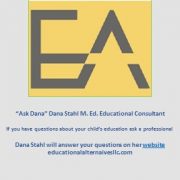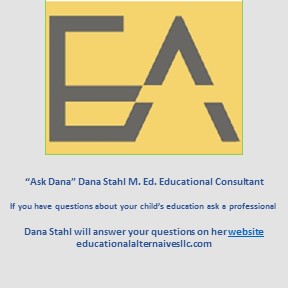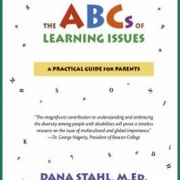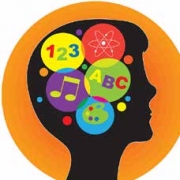Understanding the Needs of Exceptional Students When Assessing Appropriate Educational Schools and Programs
Understanding the Needs of Exceptional Students When Assessing Appropriate Educational Schools and Programs
By Dana Stahl, M.Ed., Educational Alternatives LLC
Reprinted from “Insights” The Newsletter of the Independent Educational Consultants Association, April/May 2015
 Individual profiles provide essential information for educators. Interpreting these formal evaluations enables educators to build on the recommendations in the profiles to create effective teaching strategies for their students with learning issues. Using these profiles to supplement their own observations, educators can distinguish among various learning and behavior issues. They are thus better able to understand their students’ individual differences and design successful academic lessons. Educational consultants who also rely on understanding a student’s individual profile will deepen their skill set by acquiring a better appreciation of their client’s needs, thereby expanding their ability to secure appropriate educational placements for exceptional clients. By familiarizing themselves with specific learning issues, educational consultants will increase their realization of the academic, social, and emotional issues that exceptional students face, thus gaining an increased command of their client’s unique learning needs.
Individual profiles provide essential information for educators. Interpreting these formal evaluations enables educators to build on the recommendations in the profiles to create effective teaching strategies for their students with learning issues. Using these profiles to supplement their own observations, educators can distinguish among various learning and behavior issues. They are thus better able to understand their students’ individual differences and design successful academic lessons. Educational consultants who also rely on understanding a student’s individual profile will deepen their skill set by acquiring a better appreciation of their client’s needs, thereby expanding their ability to secure appropriate educational placements for exceptional clients. By familiarizing themselves with specific learning issues, educational consultants will increase their realization of the academic, social, and emotional issues that exceptional students face, thus gaining an increased command of their client’s unique learning needs.
It is important to define behaviors often associated with learning issues frequently observed in children with learning disabilities, ADHD, and Asperger’s. By increasing their comprehension of specific learning issues, educational consultants will enhance their ability to select appropriate academic programs and placements. These learning issues include academic anxiety, problems with transitions, attention to academic tasks, decoding skills, executive functioning, expressive language difficulty, immature social-emotional development, immature social judgment, information overload, listening skills, organization/time management, processing speed, reading comprehension, working memory, and written language skills. Educational consultants will profit from understanding how these learning issues correlate with specific classroom behaviors. It is advantageous that consultants recognize the relationship between classroom behavior and learning issues in order to assess the educational environment in which their clients will obtain the most benefit.
There are typical behaviors exhibited by exceptional students that scores of educators observe in their classrooms every day:
- There are typical behaviors exhibited by exceptional students that scores of educators observe in their classrooms every day:
- Academic Anxiety About Performance. Performance anxiety can interfere with the learning process as students tend to shut down and not ‘hear’ what is being presented. They also need continued guidance in the ‘how to’ process in preparing for assignments and tests.
- Academic Anxiety During Transitions. Settling into class and transitioning from one task to another provoke uncertainty and a disconnect in the learning process. Student presents as ill-prepared for class and appears unable to begin the class period.
- Attending to Academic Task. Loses focus and begins side talks with peers. Appears to daydream and then ‘re-enters’ the discussion. Unable to transition from one part of the lesson to another. Visible disconnect from directions to execution of tasks.
- Decoding Skills. Difficulty sounding out unfamiliar words and reading with expression. Reading rate, accuracy, and fluency all underdeveloped, despite student’s being capable of discerning the content of the text.
- Executive Functioning. Difficulty planning a series of steps to solve a problem or orchestrate the initiation and completion of an assignment. Difficulty drawing inferences and processing abstract concepts.
- Expressive Language Difficulty. Undeveloped vocabulary and linguistic skills do not allow ideas to be verbally expressed with ease or in detail. Contributions to conversations and written production are limited and unsophisticated.
- Immature Social-Emotional Development. Social adaptation among peers and faculty is underdeveloped. Limited ability to accept constructive criticism or work positively with peers. Not open to compromise and has difficulty accepting different perspectives.
- Immature Social Judgment. Age-appropriate social interactions with peers are underdeveloped and often disruptive. Not able to pick up on social cues and comments.
- Information Overload. Difficulty producing and performing work due to the multi-level demands of quantity and content.
- Listening Skills. Difficulty remaining connected during class discussions. Difficulty processing and assimilating information that is verbally presented. Difficulty filtering out what is not important when information is being presented orally.
- Organization/Time Management. Difficulty organizing notes and papers in a notebook as well as assessing how much time an assignment will take. Has a hard time negotiating school work independently.
- Processing Speed. Reduced productivity in completing assignments in timely fashion.
- Reading Comprehension Skills. Avoids reading assigned text. Difficulty making interpretive analysis of reading material. Misses salient points of text and often unable to follow written directions.
- Working Memory. A disconnect in processing and holding onto information that is being presented. Demonstrates difficulty with tasks that require internal manipulation or organization of information.
- Written Language Skills. Difficulty relaying ideas in an organized and concise manner. Vocabulary use is simple and ideas presented are simplistic. Summaries of content material are underdeveloped and without direction.
There are numerous day and boarding schools that address specific learning issues. Consultants who understand how to thoroughly evaluate a student’s profile will be better able to analyze the students from an academic and social- emotional perspective, thus ensuring selecting an educational program model that suits the student’s specific strengths and vulnerabilities. There are schools that specialize in specific areas such as language-based learning disabilities or ADHD, or Asperger’s. And then there are schools that offer an array of services to students possessing a higher skill set where academic and emotional support is embedded in their programs, but is not a focal point of the day. In selecting appropriate schools and placements for clients, emphasis must be placed on the level of therapeutic and academic support offered as well as the difficulty of the curricula and the method of assessment used in the school. Discussion needs to occur to determine if this method of assessment is process oriented or end-product based. Attention also needs to be given to the extracurricular activities available at the school in athletics, music, art, and drama. So often, these exceptional students excel in areas outside the classroom, and it is in the venue of extracurricular activities that they find the confidence to sit, listen, and learn in a more structured environment.
As educational consultants expand their knowledge base of typical behaviors frequently observed by educators in the classroom and further develop a greater grasp of effective teaching strategies presented through differential instruction, they will become familiar with the ‘language of learning specialists.’ They will then be better equipped to evaluate the appropriateness of an educational program and offer suitable client placement. Having an in-depth understanding of the social-emotional and academic profiles of exceptional students is essential in order to place clients in the optimum school or program for the clients’ specific needs.
If you have questions or would like to schedule a consultation please click here







